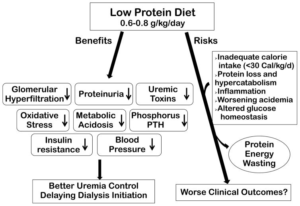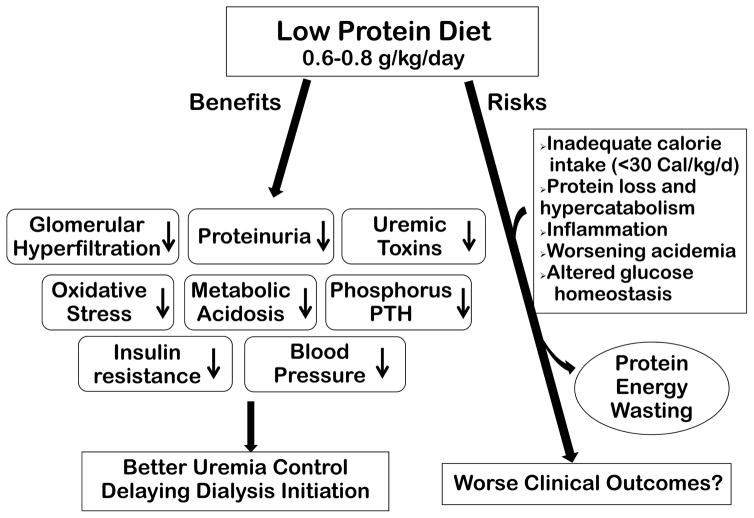
Low protein diets low in carbohydrates have been around for decades, but recent studies indicate that this low protein diet may not always be good for health.1 These studies indicate that low protein diets cause kidney stones and low blood pressure. The animal products and protein-rich foods that make up the meat, dairy, fish, poultry, and lean meats contain a lot of nitrogen, which makes up about 17% of the daily recommended dietary allowance of protein in the form of animal products.
However, if you do not suffer from kidney problems and low protein diets do not adversely affect your health you may want to consider a low protein diet.2 You may lower your total protein intake, but you will probably increase your vegetable intake. Vegetables like leafy greens, beans, nuts, tofu, and even lentils all contain proteins that can be converted into proteins. Even though your vegetables may not contain a lot of calories per serving they can still provide some nutrition and can make up part of your overall daily calories. Some people may prefer to have more vegetables than others while others may like more fruits and vegetables. The key is choosing the right type of food and protein intake for your lifestyle.
If you are an athlete or if you participate in very physically active sports you should always consult your doctor before starting a low protein diet. You should also talk with your trainer or team physician before you begin any new fitness or weight loss program. A good nutritionist can help you choose the right low protein diets for your needs and goals and can offer support in your journey towards better health.
Low Protein Diets
Low protein diets have been in use for years, with the most popular of these diets being the famous Atkins diet. This diet consists of a special type of diet, low protein, low carbohydrate.3 According to these diet facts, one who has adopted it can shed about twenty pounds in two weeks’ time. The diet facts indicate that this diet should only be practiced for six weeks at a time and then one should return to normal eating habits. In addition, this diet should not be followed for more than two months.
A low protein diet is a diet where individuals reduce their daily intake of proteins, primarily amino acids.4 A low protein diet is usually used as an alternative therapy to treat metabolic diseases, like homocysteine and phenylalanine, and is also used to treat liver or kidney disease. It works by reducing the absorption of calcium, magnesium, and phosphorus along with fatty acids. Thus, most nutrients and minerals are excreted through the urine instead of being absorbed and used by the body.
Benefits of a Low Protein Diet – Is it Really Possible?
If you want to know more about the benefits of a low protein diet, then you have come to the right place. People have been eating protein for hundreds of years, and there is much proof that the diet actually works in keeping your body in great health. There is also a lot of evidence that it is beneficial for weight loss, as well as helping to maintain a healthy heart.
Unfortunately, a low protein diet isn’t good for most people. The reason is because the body requires a certain amount of protein to help your brain function properly. When you eat too little protein, your brain gets overloaded with energy, which means that it has to work extra hard to process everything. This is bad for you and can cause serious problems, such as mental fatigue and depression. Eating more protein is the way to go if you want to avoid these side effects.
On the other hand, low protein bars can be perfect for people who need to lower the amount of protein supplements in their diets. If you want to enjoy low amounts of protein without having to worry about any negative effects, then protein bars with low amounts of protein are the ones that you should choose. As well, the various health benefits they offer are another good reason why the low-protein bars industry continues to grow. Now you know exactly why protein bars with low amounts of protein are the best for those who need to consume less protein.

Protein Bars for Low Protein Diets
One of the great things about low protein diets is that there are a lot of protein bars that can easily be bought in any supermarket. These products come in different types, flavors, and sizes. When choosing these products, make sure you choose the ones that would best suit your taste.
It’s best to choose bars that have high contents of protein content. Many protein bars nowadays come loaded with protein to ensure that your taste buds are satisfied. Some of these products have whey protein, soy, or casein protein as their main ingredients. This is perfect because most protein-based low-protein diet supplements already come with a variety of protein sources, so it is easier to choose which one would best benefit you.
Most protein diets today come with complete nutrition information. They include calories, fats, fiber, protein, vitamins, and minerals. Carbohydrates are needed for energy. Fats are used for protection against harmful toxins. Vitamins and minerals are needed to maintain a healthy body.5
It is important to remember that different types of protein bars have different absorption rates. Some are low in carbs but high in protein. Some are low in fat but high in carbs. Choose the protein bar wisely to get the best results. Carbohydrates will make your body use protein more effectively which can lead to faster muscle growth and better workouts.
Are Low-Calorie Protein Bars Good For Muscle Building?
Low-calorie protein bars are among the most nutritious and useful products available today for bodybuilders and those who are looking to build muscle. They are full of all kinds of healthy ingredients that you would not normally find in other nutritional supplements and offer the benefit of being low-calorie, with a large variety of flavors to choose from. These bars give the promise of providing your body with some amazing amounts of protein.
The short answer to this question is yes. In order to build muscle you need to ingest a lot of protein and your diet will help you do this. Protein supplements, including those with low-calorie content, are great for building muscle and keeping it that way. You can get a lot of protein by simply eating more foods containing meat, eggs, milk, and fish, as well as protein bars, nuts, and beans.
Low calorie, high protein food groups contain lots of protein but also lots of saturated fat. The protein in these products is easily absorbed by the body and used for building muscle, however, most people are not aware that there is a healthy balance of all of the nutrients in their diet.
For example, carbohydrates make up only 45% of a person’s daily calories, and therefore, they must be carefully monitored for maintaining a healthy weight.6 Protein supplements are also a very helpful supplement to add to a muscle-building diet, especially if you are trying to bulk up or gain muscle mass.
When you take in a protein supplement, such as consuming low-calorie protein bars, you are actually consuming more calories than you would by eating a whole serving of your chosen muscle-building food. It is important that you do not exceed your daily caloric requirements and that you exercise daily. Also, you should consider that you can consume protein without gaining weight, which means that there is no need to count calories. A number of studies have shown that when combined with a healthy, low-fat, high protein diet, these supplements can help you gain muscle mass while maintaining healthy body weight.

Are Low-Calorie Protein Bars Good For Weight Loss?
Everyone knows that eating a low-calorie diet is important for weight loss, but some people wonder if low-calorie protein bars are effective. After all, there is no question that low-calorie diets result in weight loss. But, researchers have found that low-calorie weight loss protein bars help people stick to their weight loss plans. These protein bars are very different from the typical low-fat bars that you see on the market.
Research has shown that consuming plenty of protein is an essential part of successful weight loss. Protein plays many roles in our health, and the human body needs all of it. Protein helps to form strong bones and teeth, maintains the nervous system and other internal organs, maintains the immune system, and helps maintain a healthy blood flow throughout the body. In other words, without enough protein, you won’t get the benefits that your body needs.
You probably know that eating a low-calorie protein bar is important for weight loss, but how do you know when to consume one? Experts suggest that you should consume one after completing a strenuous activity for at least an hour, such as exercising. Protein helps your body to repair damaged cells. And while you’re at it, consume one after each meal for maximum benefit. Consuming one after every meal is the best time to consume low-carb protein bars for weight loss.7
Low-calorie protein bars are great for those who want to maintain a healthier diet while cutting back on the number of carbohydrates and fat they consume. You will have more energy and feel much better about yourself when you consume such a product because it allows you to enjoy high-quality protein without having to eat too much of it.
Image Credits
Europe PMC / January 1, 2017
I Wanna Burn Fat / October 30, 2018
1 “Low-Protein Diet: A Complete Guide – Healthline.” 22 Apr. 2018, https://www.healthline.com/nutrition/low-protein-diet. Accessed 22 Mar. 2021.
2 “Kidney infection – Symptoms and causes – Mayo Clinic.” 26 Aug. 2020, https://www.mayoclinic.org/diseases-conditions/kidney-infection/symptoms-causes/syc-20353387. Accessed 22 Mar. 2021.
3 “Low-protein diet: Foods to eat, foods to avoid, recipes, and safety.” 16 May. 2019, https://www.medicalnewstoday.com/articles/325197. Accessed 22 Mar. 2021.
4 “Essential Amino Acids: Definition, Benefits and Food Sources.” 12 Jun. 2018, https://www.healthline.com/nutrition/essential-amino-acids. Accessed 22 Mar. 2021.
5 “Micronutrients: Types, Functions, Benefits and More – Healthline.” 27 Sep. 2018, https://www.healthline.com/nutrition/micronutrients. Accessed 22 Mar. 2021.
6 “Carbohydrates: How carbs fit into a healthy diet – Mayo Clinic.” https://www.mayoclinic.org/healthy-lifestyle/nutrition-and-healthy-eating/in-depth/carbohydrates/art-20045705. Accessed 22 Mar. 2021.
7 “Protein and Weight Loss: How Much Protein Should You Eat Per Day?.” https://blog.nasm.org/nutrition/how-much-protein-should-you-eat-per-day-for-weight-loss. Accessed 22 Mar. 2021.
